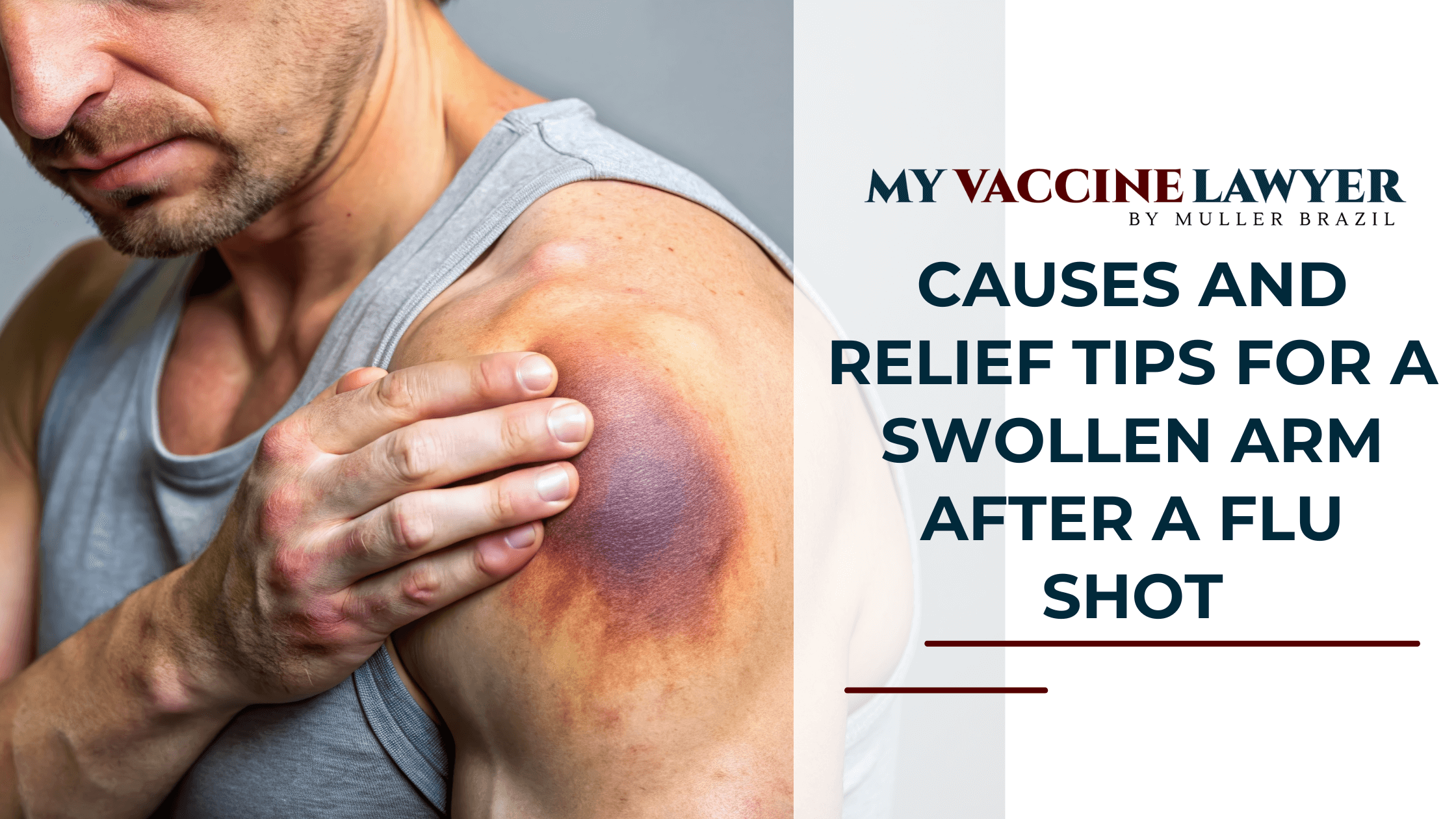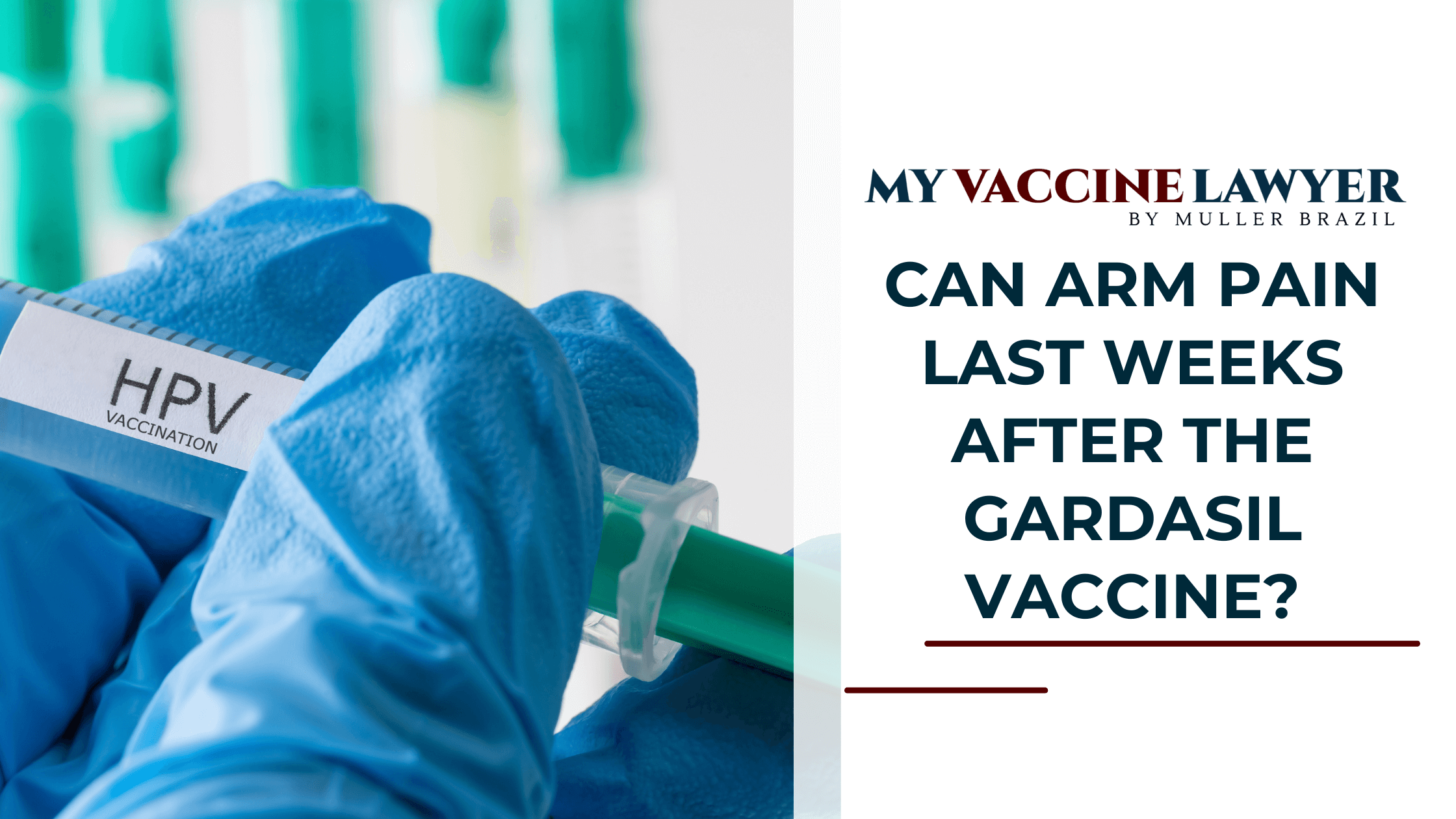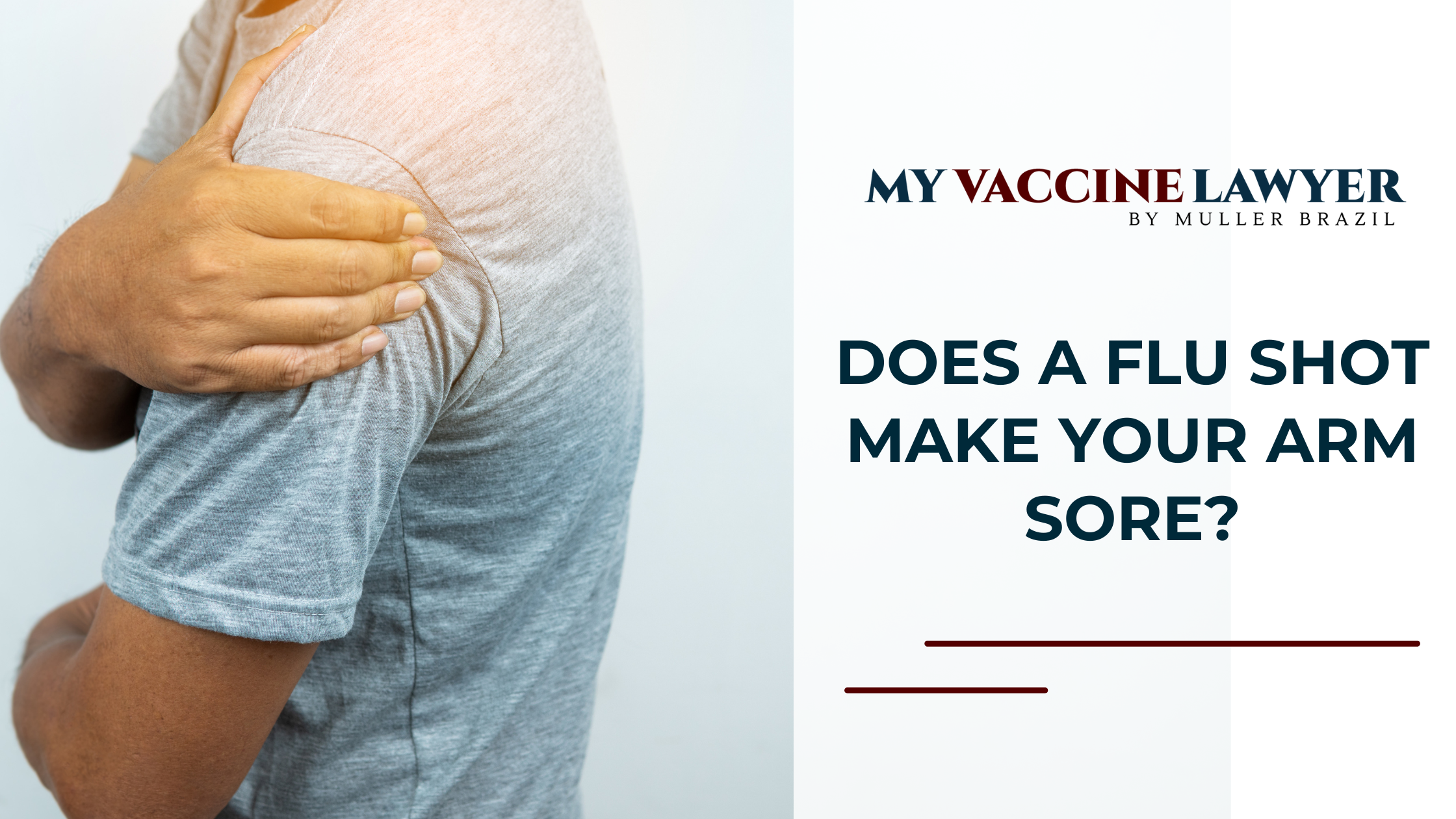Causes and Relief Tips for a Swollen Arm After a Flu Shot
Flu shots can cause arm swelling due to your body's immune response, but if the swelling worsens or persists, it may signal a more serious issue...
3 min read
Vaccine Injury Law Resources / Arm Pain / Does a Flu Shot Make Your Arm Sore?
 Max Muller
:
Feb 18, 2025 8:15:00 AM
Max Muller
:
Feb 18, 2025 8:15:00 AM
A flu shot can make your arm sore due to muscle irritation and your immune response, but persistent pain could signal a more serious issue requiring medical or legal attention.
A sore arm is one of the most common side effects of the flu shot, but why does it happen? If you've ever walked away from a flu vaccine appointment with an arm hurt worse than expected, you're not alone. While this discomfort is typically mild and temporary, some individuals experience lingering arm pain or even more severe reactions.
The influenza vaccine protects against the flu virus, triggering the immune system to build defenses. However, the body's immune response can lead to arm soreness, muscle aches, and mild swelling at the injection site. Most people find the discomfort goes away within a few days, but in some cases, serious side effects may develop.
Understanding why flu shot pain occurs and how to reduce soreness can help you feel more comfortable after vaccination. But if you experience a persistent sore arm feeling or unexpected complications, it may be more than just normal flu shot soreness and legal options could be available to you.
The flu shot is injected into the deltoid muscle in your upper arm. This can lead to sore arm symptoms due to:
Most people experience soreness for 24–72 hours, but discomfort that lasts beyond a few days could indicate an underlying issue.
While flu shot soreness is temporary, these simple steps can help reduce pain faster:
Most flu shot soreness goes away within a few days, but in rare cases, severe or prolonged arm pain may indicate a more serious issue.
Seek medical attention if you experience:
For most people, flu shot soreness is mild and temporary. However, in rare cases, individuals experience lingering arm pain, stiffness, or reduced mobility long after the expected recovery period.
One possible cause is Shoulder Injury Related to Vaccine Administration (SIRVA), which occurs when a vaccine is injected too high or too deep into the arm muscle. This can lead to:
Other conditions linked to long-term arm pain after vaccination include frozen shoulder (adhesive capsulitis) and brachial neuritis, both of which require medical treatment.
Take Control of Your Injury Today
What Should You Do If You Experience a Vaccine-Related Injury?
If flu shot pain lasts longer than expected or worsens over time, taking the right steps is necessary. Persistent arm pain, inflammation, or weakness may indicate a vaccine-related injury or nerve damage.
Here’s what to do next:
For most people, a sore arm after a flu shot is a minor inconvenience. But if your flu shot pain lasts longer than expected, limits your mobility, or worsens over time, it may indicate a vaccine-related injury that requires legal action.
At My Vaccine Lawyer, we help individuals suffering from SIRVA, chronic shoulder pain, and other vaccine injuries secure compensation through the National Vaccine Injury Compensation Program (VICP). Our team handles the legal process so you can focus on recovery and there are no out-of-pocket costs to you.
Mr. Muller currently devotes the majority of his law practice to aggressively fighting for the victims of unsafe drug and medical device injuries, as well as vaccine injuries and vaccine reactions involving the flu shot, TDaP/DTaP vaccine, and more. He has handled hundreds of SIRVA injury cases (shoulder injury related to vaccine administration), especially those involving bursitis, tendonitis, frozen shoulder, and rotator cuff tears. Mr. Muller also handles cases where vaccines caused serious nerve injuries such as Guillain-Barre Syndrome. Mr. Muller has recovered millions of dollars in compensation for his clients in the Vaccine Injury Compensation Program.

Flu shots can cause arm swelling due to your body's immune response, but if the swelling worsens or persists, it may signal a more serious issue...

Arm pain after the Gardasil shot is usually mild and short-lived, but if it persists for weeks, it could be a sign of SIRVA or another...

To relieve flu shot side effects, start by applying a cold compress to the injection site right after getting the shot to reduce pain and swelling....
